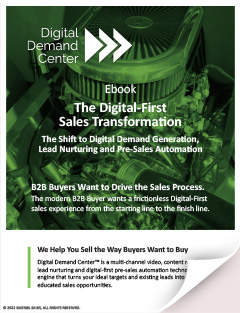This blog outlines how a business case study can be leveraged as a marketing tool, and the ways doing so can benefit your company.
While a case study’s primary function is to educate its reader on a particular subject, the power of using a case study as a piece of B to B sales content should not be overlooked.
In recent years, many companies have started using case studies as a means of educating potential customers on the type of work they do. As an outsourced sales and marketing company, we find this helps the company both build credibility and work more time efficiently during the sales process.
Case studies can be used to build credibility by reassuring the potential customers of the company’s past successes. A case study provides a company with the opportunity to provide a narrative of their process to show the tangible value and explicit results of the work they do.
A good case study starts by outlining the starting point. Here, the company has the chance to detail the problems they are equipped at solving and explain how their solutions fit the customer’s specific needs. Expose a business pain your customer has, and that you know how to fix it. In essence, you put your potential buyer into the shoes of a decision maker who has already been in their position.
The “Results” section of a case study then shows readers why your company’s solution to its client’s problems were the best, by providing evidence of the success of your business relationship. Results should be expressed in specific, quantifiable terms to exhibit that your company not only has a process for solving problems, but that it can execute as well. Results should also reveal the broader business problem your company solves (i.e. closing more deals, increasing profit, etc.).
During the sales process, companies can direct decision makers to their case studies to help persuade him/her to reach a decision. This helps the company work more time effectively by eliminating the need for people to give out this information over the phone.
Overall, a case study should tell your business story. Unlike white papers, which are more detailed and generalized, case studies provide personal narratives of specific situations, and give a chance to show that your company’s work has real value.
For more information on B to B sales content or how to write business case studies, please contact Gabriel Sales.




